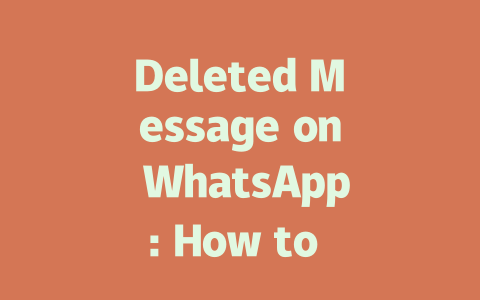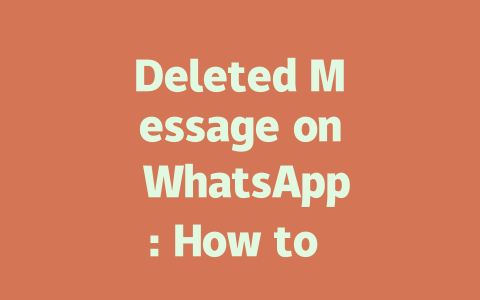You ever feel like you’re drowning in a sea of news but still can’t seem to find what you’re looking for? With so much information out there, staying updated on the latest news without feeling overwhelmed can be tough. But don’t worry—I’ve been through this myself. Last year, I helped my friend organize their daily news routine, and within a month, they were more informed than ever. So today, I’m sharing some tricks that really work, even if you’re not an expert in digital media.
Why is staying updated so important? Well, think about it: when you know what’s happening around the world, you can make better decisions, both personally and professionally. Plus, it’s just nice to have something interesting to talk about at dinner parties. The key lies in knowing how to filter the noise from the signal—and that’s exactly what we’ll cover here.
Choosing Reliable Sources of News
Let’s start with the basics. You’ve probably heard people say things like, “Just stick to reputable sources.” But what does that mean, exactly? A few months ago, I started paying closer attention to where I got my news. Here’s what I learned:
For instance, during the pandemic, I found myself checking multiple sources—The New York Times for global updates, CNN for breaking news, and local newspapers for community happenings. Mixing these up helped me stay balanced and well-informed.
Now, let me share a personal tip: before trusting a source, do a quick background check. According to a study by Pew Research, public trust in journalism has been declining over the years. That said, established names like BBC, Reuters, and AP News still rank high because they adhere to strict editorial standards.
Crafting Your Personalized News Diet
Okay, so now you know which sources to trust—but how do you manage them effectively? Think of your news consumption as a diet. Just as you wouldn’t eat junk food all day, you shouldn’t consume low-quality content either. Here’s how I set up my own “news diet“:
Setting Boundaries
Prioritizing What Matters Most
Ever notice how some days the news feels overwhelming? That’s because everything gets lumped together—politics, sports, entertainment. To avoid burnout, ask yourself: What matters most to me right now?
Here’s a table to help you prioritize:
| Category | Why It Matters | How Often to Check | Suggested Sources |
|---|---|---|---|
| Global News | Understand major world events. | Daily | BBC, Reuters |
| Local News | Stay connected to your community. | Twice per week | Your city’s newspaper |
| Science & Tech | Learn about advancements shaping the future. | Weekly | Mashable, Wired |
Avoiding Common Pitfalls
Even with a solid plan, mistakes happen. Over the past year, I’ve seen plenty of people fall into common traps while trying to stay informed. Let me break down a couple:
Take, for example, political coverage. One outlet might highlight tax reform benefits, while another focuses on its drawbacks. By reading both sides, you form a more complete understanding.
If you’re unsure whether a piece contains bias, try asking yourself:
Pro Tip: After finishing an article, reflect on what you learned. Did it answer your questions, or did it leave you confused? Trustworthy content should leave you feeling informed, not frustrated.
Engaging Actively with the News
Finally, don’t just passively consume news—engage with it! Last summer, I joined a book club that discussed current affairs every week. Discussing complex topics with others gave me fresh perspectives and deepened my understanding.
So here’s what you can do:
And remember, staying updated isn’t about memorizing every detail—it’s about grasping the big picture. If you follow these steps, you’ll be able to navigate the news landscape confidently, even in
If you’ve ever lost an important message on WhatsApp, don’t panic just yet. The good news is that recovery is possible if you’ve been diligent about backing up your chats. For Android users, Google Drive serves as the go-to platform for storing these backups, while iOS users can rely on iCloud. When setting up a new device or reinstalling WhatsApp, the app prompts you to restore from your most recent backup. This process brings back not only your messages but also media files like photos and videos, provided they were included in the backup settings. So, before you jump into any complicated solutions, make sure your backup feature is turned on and regularly updated.
Now, here’s something worth noting: once a message is deleted from your chat, WhatsApp doesn’t hang onto it anymore—it’s gone from their servers for good. But here’s the catch—if you had created a backup within the last 24-48 hours, chances are that message is still tucked away safely in your cloud storage. It stays there until the next backup overwrites it. That’s why timing plays a crucial role. Regularly backing up your chats every 5-12 days ensures you’re always covered. However, be cautious with third-party apps promising miracle recoveries. While some might work, they often come with risks such as data leaks or incomplete restorations. Sticking to official methods keeps your information safer and more secure in the long run.
FAQ
# Can I recover deleted messages from WhatsApp in 2025?
Yes, you can recover deleted messages if you have a recent backup. WhatsApp allows recovery through backups stored on Google Drive (Android) or iCloud (iOS). Ensure your backup settings are active and follow the restoration process during a fresh installation or by restoring locally.
# How long does WhatsApp keep deleted messages?
WhatsApp does not retain deleted messages on its servers once they are removed. However, if a message is deleted but a backup has already been created (within the last 24-48 hours), it may still exist in your cloud storage until the next backup overwrites it.
# Is there a time limit for recovering messages from WhatsApp backups?
There is no specific time limit for restoring messages from backups, but the success depends on how recent your last backup was. For optimal results, ensure you back up your chats regularly (every 5-12 days, depending on usage).
# Can third-party apps help recover deleted WhatsApp messages?
Third-party apps might assist in recovering messages, but they come with risks such as data breaches or incomplete recovery. Always prioritize official methods like WhatsApp‘s built-in backup and restoration features for safer outcomes.
# Why can’t I see some deleted messages even after restoring my chat backup?
This could happen if the message was deleted before the last backup occurred. Additionally, media files (images, videos) might not restore properly if they were excluded from the backup settings. Double-check your backup preferences and ensure all data types are included.




